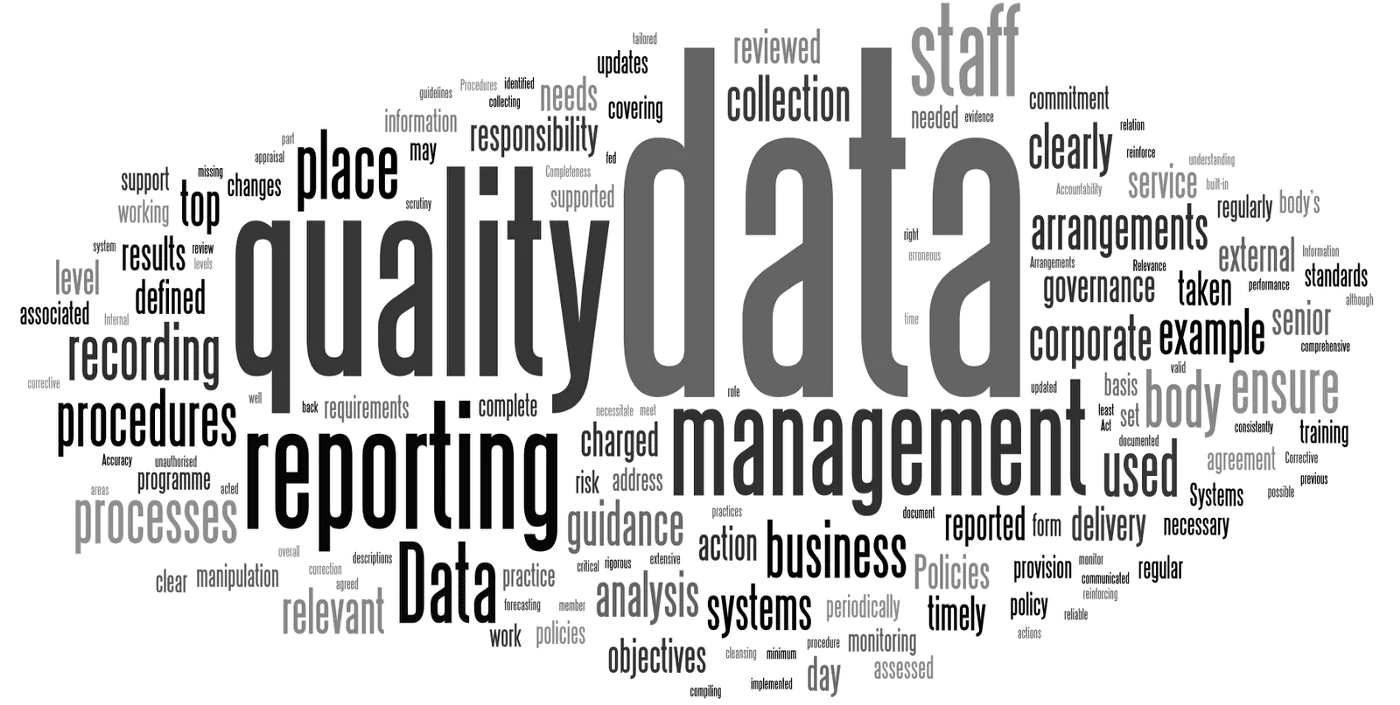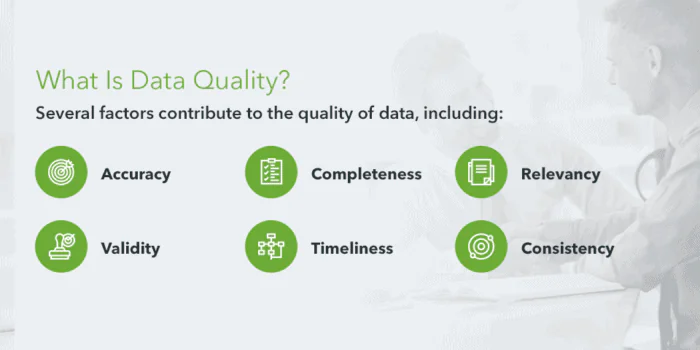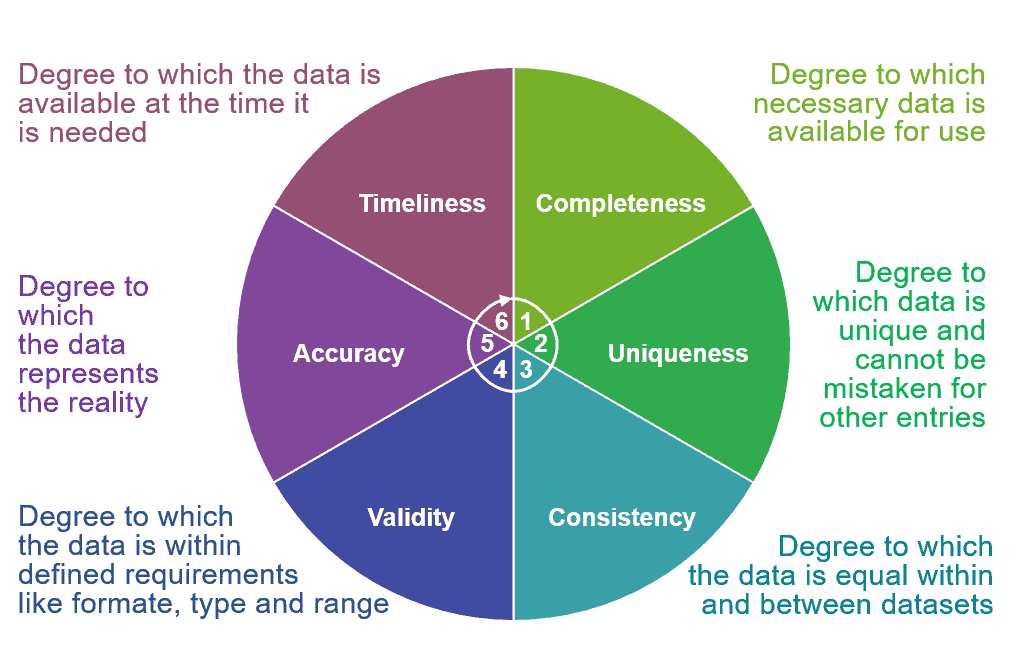
What Is Data Quality?
Data management is regarded as one of the most critical processes for leading cooperations and organizations. In today’s digital era, companies deal with large amounts of data daily therefore it has become an absolute necessity for businesses to process, manage, store and access information at the right time. There is always a window open for outsourcing all your data processing concerns to a third-party service provider if you have limited resources you can rely strongly on data management tools to efficiently enter, process, cleanse and scan loads of documents for a prosperous business.
In old times companies had to go through a lot of fuss to gather reliable information but with better technology use at hand, one can easily automate data nowadays with the help of Machine Learning (ML), The Internet of Things (IoT), and Artificial Intelligence (AI). To compete with the industrial competition you should stress more on extracting valuable data from multiple trusted online resources and further utilize specialized programs to make the most of the data to achieve business targets. The value of data is based on its quality. During the COVID-19 pandemic, businesses realized the significance of high-quality data to make quick and faster business decisions to stay ahead of their online competition.
According to a Harvard Business Review study, there are merely 3% of the data scores are termed acceptable the rest are not usable by companies. Therefore, it is an urgent need for companies to diagnose data errors and resolve them and check whether digital data can meet their business objectives or not. Data quality is the measure of data-based factors like consistency, accuracy, reliability, completeness, and relevance with the point in time.
Accuracy
By accuracy, it means that all the details incorporated in the data are accurate. Just like the database of physicians in New York deals with all kinds of information such as names, email ids, phone numbers, addresses, and other details which must be accurate at all costs. In addition to being precise and error-free, there should be no missing numbers or letters in the records.
Completeness
Completeness further elevates the value of data by making it more comprehensive. The data should be well managed and without any missing pieces of information to make it more robust. For instance, a school database deals with information about teachers, students, and other staff members. If there is any obsolete or missing record then data quality would be less than generally accepted data standards.
Reliability
Data quality is graded in terms of reliability as there exists no form of contradiction between the information of one system and another open-source. For example, if a person’s DOB is entered into one system as of June 7, 1980, and as of June 7, 1982, in the second system then the information is unreliable and can not be trusted. Data reliability is, therefore, a genuine concern for businesses to secure their databases.
Relevancy
Data relevancy corresponds to the specific purposes for which the information is collected from numerous sources. If you collect information that is not relevant to your business objectives then it is just time wastage with no value addition. Irrelevant data is not required by any business to target objectives. For example, in a hypothetical situation, you are researching teenagers’ online shopping interests for this purpose you will only need to focus on teenagers and exclude adults to remove unnecessary observations.
Timeliness
Timeliness is another data quality measure that refers to up-to-date information. Accurate and updated information will help you to make access decisions for long-term business goals. The timeliness of data is the most crucial element in making effective data management possible. In the book “The Practitioner’s Guide to Data Quality Improvement”, by David Loshin, timeliness is stated as the time expectation for data accessibility. For example, in the healthcare sector, accurate and timely HER data is required for the system to provide aftercare with a quick action response.
Importance of Good-quality Data for Businesses
Good quality data exerts a positive impact on areas responsible for exceptional business performance, companies can focus on improving data quality by considering below mentioned key points –
Reduces Risk in Decision Making
As we all are aware the popular maxim ‘garbage in, garbage out’ stands opposite when it comes to top-quality data. Low-quality datasets can lead to massive business losses and result in faulty business decisions. KMPG’s 2016 Global CEO outlook has referenced that around 84% of CEOs are worried about data quality to make impact worthy decisions.
Enhances Competitive Advantage
Possessing reliable information is nothing less than a blessing, as it helps companies to gain insights by supporting new product development or customer service. With good quality data by your side, you can stand victorious over the competition by taking advantage of critical opportunities.
Boosts Productivity and Revenue
With quality data, businessmen and employees can work on core tasks instead of wasting more time on primary issues. Top-quality data covers data integrity from all aspects like identifying possible errors and checking the overall validity of the information. Quality customer data results in better lead generation and smarter business dealings to meet their needs which ultimately result in revenue generation with better sale conversions. Reliable data have a huge impact on industry trends to help businesses improve their products and services.
Drives Compliance
As new advancements are being made in different domains, many businesses are under increasing pressure to process heavy files and maintain compliance with clients. As per Forbes Annual Report, graph databases are assisting finance firms to conform to anti-money laundering regulations.
Reduces Threat of Reputational Damage
Low-quality data is a threat to your business reputation as even the slightest mistake can become a major blunder. Data quality is directly proportional to the business reputational effect. Invalid email addresses, irrelevant marketing messages, the inaccurate spelling of customers’ names, issues with email delivery, and high bounce rates impact customer satisfaction rates.
Companies can easily leverage the latest technologies to process, analyze and store a large amount of data to derive useful insights for an efficient business growth plan. If you are hesitant, non-professional, or a newbie you can always rely on experienced third-party data processing services like data entry, data cleansing, document scanning, and data conversion to prepare rigorous data analysis for your company sovereignty. Harvard Business Review published an article on data quality in which top data quality consultant Thomas Redman quoted the yearly cost of inferior data quality in the U.S let alone – a shocking increase of $3.1 trillion back in 2016. Looking into these proven facts it is considered the best in your company’s favor to timely implement measures to ensure good data quality it is not only the responsibility of data scientists but every employee being a part of the organization. If you are interested in getting ITS Data Entry Services, you can ask for a free quote!





